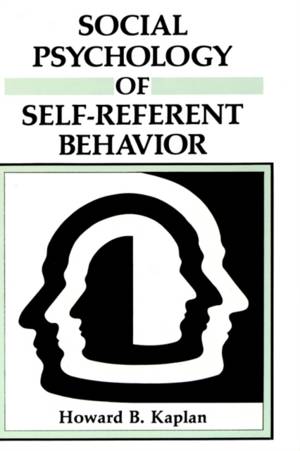
- Retrait gratuit dans votre magasin Club
- 7.000.000 titres dans notre catalogue
- Payer en toute sécurité
- Toujours un magasin près de chez vous
- Retrait gratuit dans votre magasin Club
- 7.000.0000 titres dans notre catalogue
- Payer en toute sécurité
- Toujours un magasin près de chez vous
83,95 €
+ 167 points
Format
Description
This book is about human behavior and, more particularly, about a class of human behaviors-those behaviors by people that have themselves as the object of their behaviors. These self-referent behaviors are social in nature in the sense that in large measure, they are the outcomes of pervasive social processes and are themselves major influences on social outcomes. As such, self-referent behaviors have the potential to be sig- nificant organizing constructs in the study of the broader field of social psychology. In any case, they are regarded here as of intrinsic interest and are the focus of this volume. Four broad categories of self-referent behaviors are considered with regard to their social bases and conse- quences as these are revealed in the social psychological and sociological literature. With appropriate discriminations made within each group- ing, the four categories are: self-conceiving, self-evaluating, self-feeling, and self-protective-self-enhancing responses. Following a consideration of the social antecedents and consequences of each category of self- referent behaviors, I present a final summary statement that outlines a theoretical model of the additive and interactive social influences on and consequences of the mutually influential self-referent behaviors. The outline of the theoretical model reflects my synthesis of the apparently relevant theoretical and empirical literature and is intended to function as a framework for the orderly incorporation of new theoretical asser- tions and more or less apparently relevant empirical associations.
Spécifications
Parties prenantes
- Auteur(s) :
- Editeur:
Contenu
- Nombre de pages :
- 211
- Langue:
- Anglais
Caractéristiques
- EAN:
- 9780306423567
- Date de parution :
- 30-11-86
- Format:
- Livre relié
- Format numérique:
- Genaaid
- Dimensions :
- 165 mm x 242 mm
- Poids :
- 517 g

Les avis
Nous publions uniquement les avis qui respectent les conditions requises. Consultez nos conditions pour les avis.






